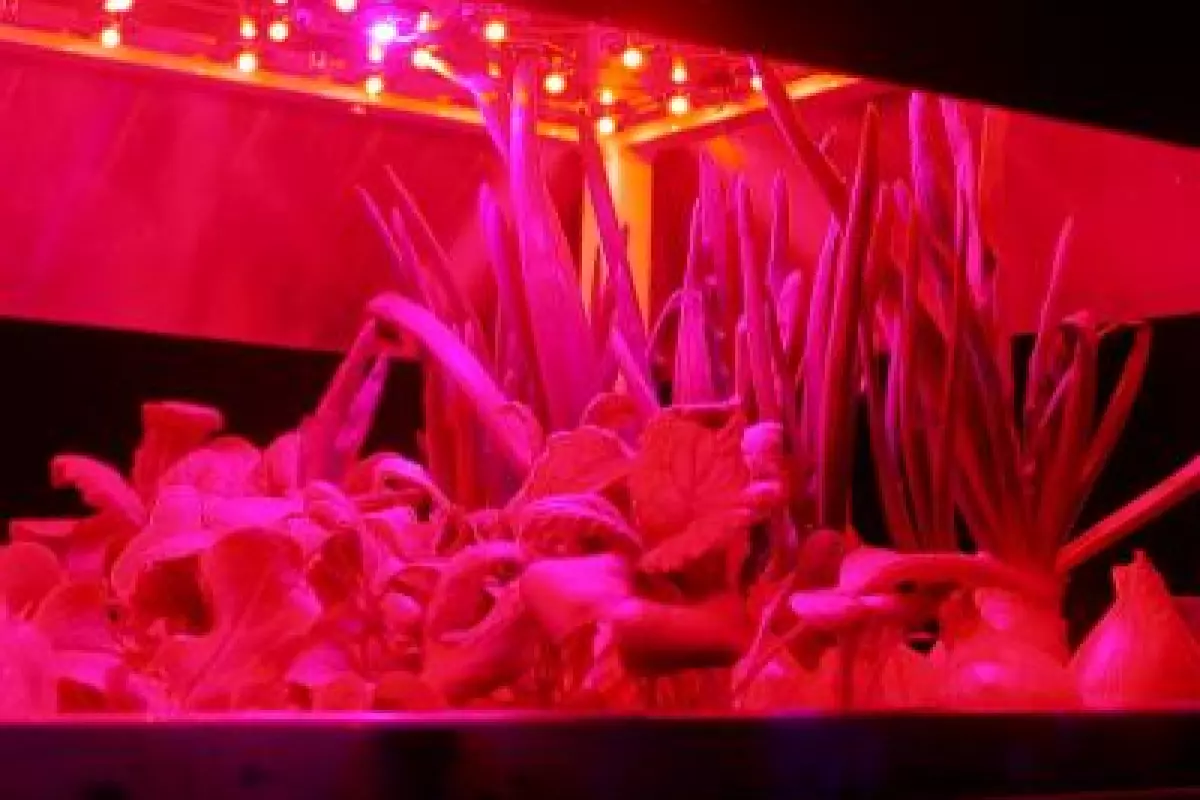We all know we should eat our greens because they're good for us. Lithuanian researchers have found a way to make them even healthier by exposing them to short-term light treatment with a solid-state illuminator, reducing harmful nitrate concentration by 44% - 65% and boosting nutritional value.
The researchers grew lettuce, marjoram, and green onions to harvest time in a greenhouse in daylight conditions with supplementary lighting from standard high-pressure sodium lamps. The plants were then given a 3-day treatment with a solid-state illuminator which generates high-density photosynthetic photon flux.
In addition to reducing nitrate concentration, solid-state illuminators create less radiant heat than high-pressure sodium lamps, allowing a high intensity of photosynthesis, and only need to be used for short periods of time rather than over the whole growth cycle.
So although the use of solid-state illuminators may be expensive, overall production costs are mitigated because the treatment only needs to be used for 10% of the growth cycle, and the vegetables can continue to be produced under daylight conditions. The researchers noted that the technology may be particularly practical for leafy vegetable production in northern countries where greenhouse plants are often grown under poor lighting.
The research results were published in a recent issue of HortScience.




